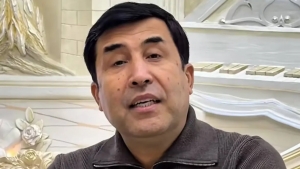Bran Stark became the new king of the Seven Kingdoms

By the end of the series "Game of Thrones," viewers had many questions about the plot, the logic of events, and the changes in the characters' actions. Upl.uz reported on this.
Previously seen as wise and intelligent, the characters began to make incomprehensible mistakes, and the story sometimes appeared chaotic and sparse. Among the final decisions, Bran Stark's selection as the ruler of the Seven Kingdoms is one of the most controversial issues.
While some consider this choice illogical, I believe Bran is the most suitable candidate for this position. In this article, I will explain why Bran Stark is a worthy ruler and the main reasons behind this decision.
Bran Stark was born and raised in Winterfell. In his youth, he suffered a serious accident: Jaime Lannister pushed him from a tower because Bran had accidentally seen the queen Cersei in an inappropriate situation.
As a result, Bran became disabled and lost the ability to walk. Despite his physical limitations, he began to develop the ability to warg (enter animals) and learned to inhabit his giant wolf.
Later, in his dreams, the Three-Eyed Raven instructed him to come beyond the Wall. After Winterfell was captured by Theon Greyjoy's forces, Bran fled with his loyal friends and embarked on a dangerous journey north.
Along the way, he enhanced his warg and greenseer abilities, gaining more knowledge about magic and the history of Westeros. Beyond the Wall, he received training from the Three-Eyed Raven, inheriting his knowledge and powers.
Upon returning south, he reunited with his family members—Sansa, Arya, and Jon Snow—and joined the fight against the Night King. After the victory over the human forces, Daenerys Targaryen went to King's Landing, destroyed the city, and killed Cersei Lannister.
However, her reign ended tragically: Jon Snow killed Daenerys. After that, the lords of the Seven Kingdoms gathered to elect a new king.
They chose Bran Stark, also known as Bran the Broken. Firstly, despite his youth, Bran possesses unique knowledge.
As the successor of the Three-Eyed Raven, he can see past, present, and future events. This has allowed him to understand the experiences of rulers who lived for centuries and the events in Westeros.
He has a wisdom based on a deep understanding of events, as if he possesses a complete library of history. Secondly, Bran does not seek power.
While many kings have aspired to the throne for their personal interests, he is free from such feelings. After becoming the Three-Eyed Raven, he lost the desire for personal envy, wealth, or revenge.
This makes him a just and selfless ruler. He delegates daily governance to his advisors and only intervenes in important matters.
Thirdly, Bran is seen as an acceptable compromise among all major houses. Daenerys is gone, the Baratheon line has ended, and Cersei is dead.
Jon Snow cannot claim the throne due to his killing of Daenerys and his oath to the Night's Watch. Although Tyrion Lannister is clever, he has raised distrust among the lords.
Bran, however, is a representative of the ancient and respected House Stark, far from political intrigues and without personal enemies. His neutrality reduces the risk of new conflicts.
Fourthly, Bran is surrounded by strong and wise advisors. Among them is Tyrion Lannister, serving as the king's hand.
Tyrion has extensive experience in politics and governance and can communicate with both lords and common people. Additionally, important figures of the Seven Kingdoms—Samwell Tarly, Davos Seaworth, Yara Greyjoy, Brienne of Tarth, Sansa Stark, Edmure Tully, and others—voted in favor of Bran.
This strengthens his position in the country







